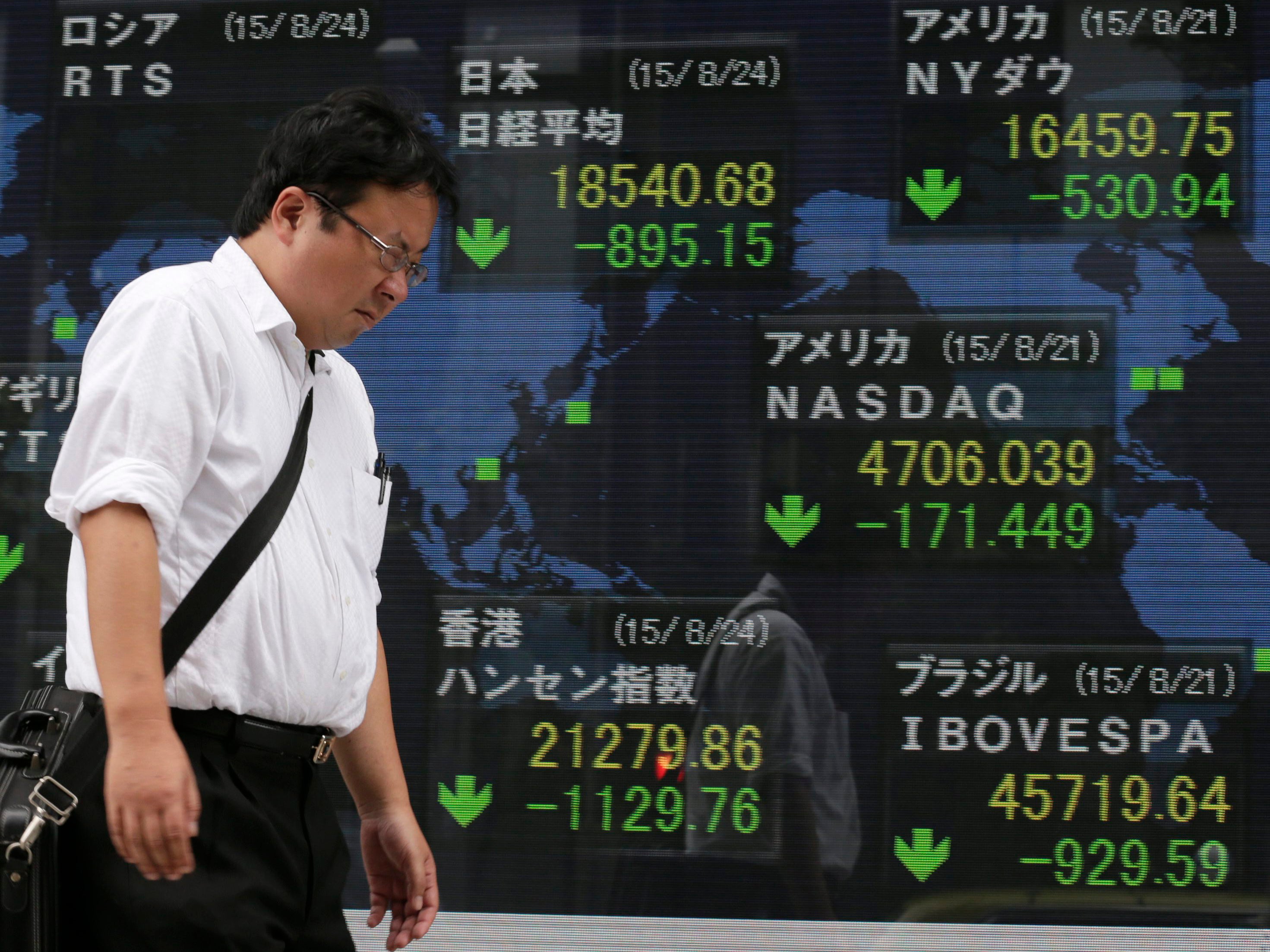Why are stock markets around the world falling?
“China” is the single most common answer given by those who work in financial markets. They talk about fears of a sharp deceleration in the world’s second largest economy. They see these fears triggering a wave of panic selling from investors around the globe.
Other culprits cited are the collapsing oil price and the prospect of an imminent hike in interest rates by the America’s central bank, the Federal Reserve.
How will this affect me?
The FTSE100 index of leading UK shares has taken a battering along with the rest of the world’s stock markets. And yet most UK forecasters expect our own economy to keep growing at a reasonable pace this year. The CBI today forecast 2.6 per cent GDP growth. The discrepancy lies in the fact that many of the companies listed on the FTSE100 are global multinationals, whose fortunes are linked to the world economy, not just the UK. The CBI and other forecasters think that trade won’t help the UK grow this year – export growth will be disappointing. But they also think that domestic household spending and business investment will take up the slack and keep the wheels turning.
Why the discrepancy?
Many of the companies listed on the FTSE100 are global multinationals, whose fortunes are linked to the world economy, not the UK’s. The CBI and other forecasters think trade won’t help the UK grow this year. But while they think that exports will be disappointing they also think that domestic household spending and business investment will take up the slack and keep the wheels of the UK economy turning. They could, of course, be wrong though.
What about my pension?
Anyone who has their pension invested in the stock market will have taken a big hit to their paper wealth in recent days. But that need not matter if your planned retirement is several decades away. There is plenty of time for the markets to recover. Those who are close to retirement will probably have been advised to shift their pension portfolios mainly into cash or bonds – meaning the equity collapse shouldn’t have hit them very hard.
So why is Chinese growth slowing?
Beijing is grappling with the end of a massive credit cycle. It managed to pump up its domestic growth rate in the global financial crisis by ordering its banks to extend a huge amount of credit to property companies. It was one of the biggest explosions of borrowing and investment spending ever seen in a single country in history. But the Chinese authorities are afraid that creating even more debt in this way could lead to a domestic financial collapse, or terrible domestic economic distortions. They are slowing the pace of credit growth and investment and trying to shift the economy into new sources of growth such as consumer spending. As they attempt this pivot, the country’s growth rate is, inevitably, slowing. The great danger is that without credit-fuelled investment the economy will slow too quickly and China will experience the “hard landing” than some economists have been dreading for many years now.
How do oil prices fit into all this?
A slowdown in China will hit demand for oil, reducing prices. But there is also a separate depressing factor, namely a glut of supply too. America shale oil and gas producers have brought huge volumes of new energy supplies to the market in recent years. And Iran is promising to step up sales production after Tehran’s recent nuclear deal with the US. The price of a barrel of oil fell to $45 today for the first time in six years. This is helping to hammer the share price of oil companies.
What about Greece?
Greece has been the dog that did not bark in this markets meltdown. Its Syriza government last month capitulated to the demands of the country’s creditors and agreed to imposed more domestic fiscal austerity. This removed the possibility of a “Grexit” and means investors in European markets were able relax. The Greek prime minister, Alexis Tsipras, did resign and call new elections last week. But very few analysts are expecting the Athens government to fall and for a new European financial crisis to break out. Again, though, they could be wrong.
What is likely to come next?
Many market participants are expecting one or more central bank to ride to the rescue in the near future to help restore confidence. This could take the form of action from the Chinese central bank to pump up growth by making it easier for Chinese banks to lend money to companies. Alternatively, the Federal Reserve may get cold feet and delay its first interest rise, which would also boost confidence. It’s also possible that stocks could bounce back in the coming days. Many traders are on holiday in August meaning trading volumes are relatively thin. In these markets changes in sentiment tend to have a much bigger herding effect. It’s possible that when more traders return they may take more sanguine view of the prospects of companies that make up the global indices and prices may recover.
Subscribe to Independent Premium to bookmark this article
Want to bookmark your favourite articles and stories to read or reference later? Start your Independent Premium subscription today.


Join our commenting forum
Join thought-provoking conversations, follow other Independent readers and see their replies